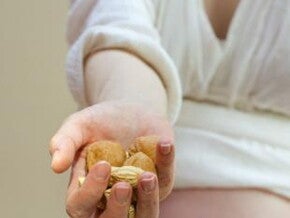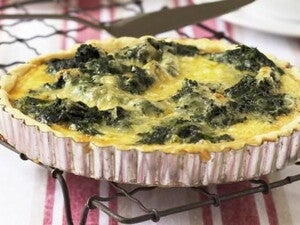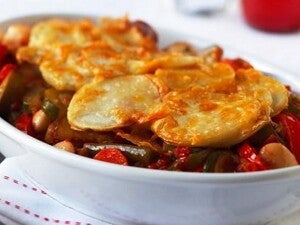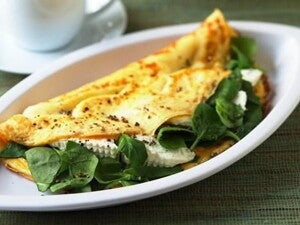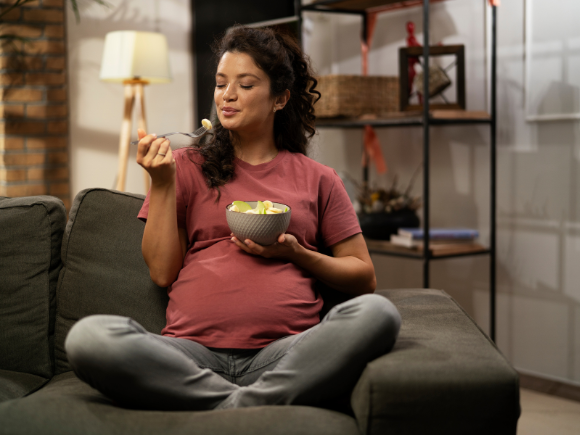
A Guide on Foods to Avoid While Pregnant
What you eat (and drink!) during pregnancy can impact your developing baby. It’s important to be aware of foods to avoid while pregnant which can make you and your baby unwell.
Eating well during pregnancy can be hard, between balancing morning sickness and cravings, whilst trying to nourish a little growing human inside you. But knowing what foods to avoid while pregnant, is almost as important as knowing what you should be eating more of. There are some foods to stay away from when pregnant because they are not safe to eat, due to an increased risk of food poisoning. There are also safety limits on beverages.
Understanding why certain foods pose risks
Choosing the right foods to eat and foods to avoid while pregnant is critical, as some foods can lead to foodborne illnesses, which can be detrimental to both mum and baby. These illnesses stem from consuming food or beverages contaminated with bacteria, viruses, parasites, or toxins, causing symptoms like nausea, vomiting, and abdominal pain.
During pregnancy, foods such as raw or undercooked seafood, unpasteurised dairy products, and certain soft cheeses carry harmful bacteria or parasites. Therefore, understanding these risks and seeking advice from your healthcare professional for personalised advice on foods to avoid during the first trimester and beyond is vital.
Foods not to eat while pregnant
Though a variety of nutritious foods support your baby's growth, there are certain foods to stay away from when pregnant. Here are the main ones:
- Raw meat and Seafood
Eating undercooked or raw meat and seafood, such as sushi, puts you at risk of Listeria and Salmonella poisoning. If Listeria is transmitted to your baby, it can lead to miscarriage, stillbirth or premature labour. - Deli meat, Pates and Meat spreads
Cold meats and pregnancy don’t go unfortunately. Refrigerated meat products like pates, ham and salami may be contaminated with listeria bacteria. It’s best to avoid these foods. - Raw eggs
Raw eggs and products containing them may contain Salmonella. Avoid raw cake batter, raw cookie dough, homemade ice cream, custards, mayonnaise, unpasteurised eggnog or hollandaise sauce and caesar salad dressings. Salmonella can cause diarrhoea, vomiting, nausea and fever. - Soft cheese
Avoid soft cheese including feta, brie, ricotta, camembert, blue vein, queso blanco, queso fresco and panela as they may be contaminated with Listeria. They are only safe to eat if served cooked and hot. - Pre-cooked or pre-prepared cold foods that are not reheated
Pre-prepared cold foods like salads and cold quiche may be contaminated with Listeria and should be avoided. - Liver in large quantities
Although liver is a rich source of iron, it contains high levels of vitamin A. If eaten to excess, this can be harmful to your baby and lead to severe birth defects. The recommended intake of vitamin A during pregnancy is no more than 800 micrograms/day. - Unpasteurised dairy products and soft serve ice–cream
These foods may be contaminated with Listeria which can be dangerous to your baby. - Fish containing mercury
Cooked fish is recommended during pregnancy as it is a good source of omega 3 fatty acids. However, some fish contain high levels of mercury which can be harmful to your baby, these fish you need to avoid during pregnancy. It is best to:
- Limit to one serve (150g) per fortnight – billfish (swordfish, broadbill and marlin) and shark (flake), with no other fish eaten in that fortnight.
- Limit to one serve (150g) per week – deep sea perch or catfish, with no other fish eaten that week.
- Eat 2–3 serves per week – of any other cooked fish or seafood (for example, salmon or tuna).
- Dips containing tahini
Tahini is a paste made from sesame seeds and may contain Salmonella. Hummus is the most common dip containing tahini. - Raw seed sprouts
Raw seed sprouts including alfalfa, mung beans, broccoli sprouts, onion sprouts, sunflower sprouts, soybean sprouts, radish sprouts and snow pea sprouts may contain various bacteria which can be harmful to your baby. Avoid these unless cooked well.
It's crucial to consult your healthcare provider or a registered dietitian for personalised advice on foods to avoid while pregnant.
Understanding beverages during pregnancy
What you drink during pregnancy is as important as the foods to avoid while pregnant.
- Alcohol - Alcohol is absorbed quickly into your body and passes through your placenta to your baby. There is no safe amount of alcohol that can be consumed whilst pregnant, so it’s safest to say no altogether to any food or beverages containing alcohol. If you drink while pregnant, your baby could suffer from Foetal Alcohol Spectrum Disorder, a range of disabilities which can affect their health for life.
- Caffeine - Caffeinated beverages include tea, coffee and cola drinks. The Australian and New Zealand food standards allow a moderate amount of caffeine (1 cup of espresso style coffee, roughly 2-3 cups of instant coffee or 4 cups of tea) which is no more than 200mg per day while you are pregnant. Having large amounts of caffeine may make it more difficult to become pregnant and may increase the risk of miscarriage or having a low-birth-weight baby.
- Energy drinks - Energy drinks can contain high levels of caffeine and/or guarana which are not recommended during pregnancy.
- Safe drinking water - Ensure your drinking water is safe and free from harmful bacteria, parasites, or chemicals.
Safe food preparation and storage
Correct food preparation and storage are paramount during pregnancy. Here are some tips:
Keep it cold
- Shop with a cooler bag
- Put any food that needs to be kept cold directly in the fridge
- Only eat chilled foods if they have come straight from the fridge
- Defrost and marinate food in the fridge, especially meats
Keep it hot
- Cook/reheat foods until they're steaming hot
- Make sure there's no pink left in cooked meats/fish
- Look for clear juices before eating freshly cooked chicken or pork
- Heat to boiling all marinades containing raw meat juices before serving
Keep it clean
- Wash and dry hands thoroughly before starting to prepare or eat any food, even a snack
- Separate raw and cooked food and use different cutting boards and knives for each
- Don't let raw meat juices drip onto other foods
Check the label
- Use food within the use-by-date
- Follow storage and cooking instructions
- Ask for information about unpackaged foods e.g. ready-to-eat salads.
Adhering to these tips can reduce the risk of foodborne illnesses and promote a healthy pregnancy.
Frequently asked questions about foods to avoid while pregnant
What not to eat when pregnant
During pregnancy, it is important to be mindful of certain foods that may pose risks to you and your baby. Avoid raw or undercooked meat, fish high in mercury, unpasteurised dairy products, raw or undercooked eggs, deli meats and hot dogs, and raw sprouts. Additionally, limit caffeine intake, avoid alcohol and tobacco completely, and be cautious with herbal supplements. It's always best to consult with your doctor for personalised advice and a comprehensive list of foods to avoid during pregnancy.
What cheese to avoid during pregnancy?
During pregnancy, it is recommended to avoid soft and semi-soft cheeses that are made from unpasteurised milk. These may include varieties like brie, camembert, blue cheese, feta, queso fresco, queso blanco, and some types of goat cheese. These cheeses have a higher risk of containing harmful bacteria such as listeria, which can pose a risk to the developing baby. To ensure safety, opt for cheeses made from pasteurised milk, as they go through a process that eliminates harmful bacteria. Always read labels and consult with your healthcare professional for specific recommendations that relate to you.
Can I eat prawns during pregnancy?
Yes, you can eat fresh cooked prawns while pregnant. However raw or undercooked seafood, including prawns, can potentially contain harmful bacteria or parasites so must be avoided. To ensure safety, cook prawns well until they are firm and opaque, to reduce the risk of foodborne illnesses.
What foods are bad for pregnant women?
Apart from unhealthy foods which everyone should limit, like those high in saturated fats, salt, or sugar, whilst pregnant it is important to be cautious about certain foods that may pose a risk of causing foodborne illnesses as they are dangerous for mum and baby. Some of these include raw or undercooked meat, eggs and seafood; unpasteurised dairy products; deli meats and cold deli salads including raw sprouts; and high-mercury fish. Any food or beverages containing alcohol should also be avoided. Talk to your doctor or dietitian for a full and comprehensive list of foods you need to avoid during your pregnancy.
What fruit needs to be avoided during pregnancy?
In general, there are no specific fruits that need to be avoided during pregnancy. Fruits are an essential part of a healthy diet and provide important vitamins, minerals, and fibre. However, it is important to practice proper food safety and hygiene when consuming fruits. Wash them thoroughly before eating to remove any potential bacteria or pesticides. Additionally, if you have any specific allergies or sensitivities to certain fruits, it is advisable to avoid them. If you have concerns or questions about specific fruits or your dietary choices during pregnancy, talk to your healthcare professional for personalised advice.
Is vegetarian sushi safe during pregnancy?
Avoid all raw or undercooked seafood, including vegetarian sushi.
Should all cheeses be avoided during pregnancy?
Only soft cheeses like Brie and Camembert, and any cheese made from unpasteurised milk should be avoided during pregnancy. Hard cheeses like cheddar are safe.
Sources:
- Pregnancy, Birth & Baby Website. Accessed at: https://www.pregnancybirthbaby.org.au/foods-to-avoid-when-pregnant
- Health Direct Website. Accessed at: https://www.healthdirect.gov.au/food-poisoning
- Food Standards Australia & New Zealand Website. Accessed at: https://www.foodstandards.gov.au/consumer/generalissues/pregnancy/pages/default.aspx


